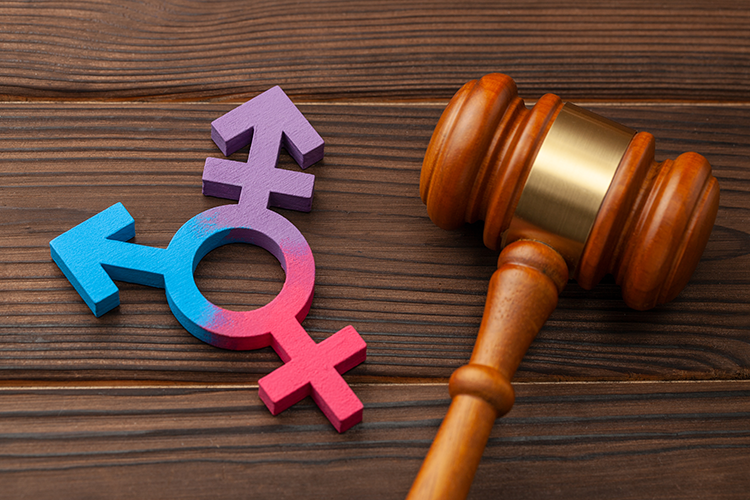11th Circuit upholds school's ban on transgender students using bathrooms corresponding with gender identity

Image from Shutterstock.
Updated: In a decision that creates a circuit split, a federal appeals court has upheld a Florida school district’s policy that bans transgender students from using bathrooms that correspond with their gender identity.
In a 7-4 opinion issued Dec. 30, the 11th U.S. Circuit Court of Appeals at Atlanta said the policy implemented by the school board of St. Johns County, Florida, doesn’t violate the Constitution or Title IX of the U.S. Education Amendments of 1972.
The author of the en banc opinion is Judge Barbara Lagoa, considered a top contender for a U.S. Supreme Court nomination during the Trump administration.
One court that reached a contrary conclusion is the 4th Circuit at Richmond, Virginia. In June 2021, the Supreme Court let stand the 4th Circuit’s decision that a Virginia school board violated the constitutional rights of a transgender student when it barred him from using the bathroom that matched his gender identity. At that time, three other federal appeals courts had issued similar rulings.
The plaintiff in the 11th Circuit case attended the Allen D. Nease High School, which had male, female and sex-neutral bathrooms. The transgender boy had claimed that the school policy that bars him from using male restrooms violates the equal protection clause and Title IX, which bars discrimination on the basis of sex at schools that receive federal funds.
The 11th Circuit said the school district had gone to “great lengths” to accommodate transgender students. One accommodation was a policy requiring transgender students to be addressed using the name and pronouns consistent with their gender identity.
“We will not insert ourselves into the school board’s ongoing development of policies to accommodate students struggling with gender identity issues—unless, of course, the school board’s policies are unconstitutional,” Lagoa wrote.
The 11th Circuit said the bathroom policy is constitutional because it advances an important governmental objective and is substantially related to that objective. The objective is “the protection of students’ privacy interests in using the bathroom away from the opposite sex and in shielding their bodies from the opposite sex.”
The appeals court also said the school board did not impose a special burden on transgender students by requiring them to use sex-neutral bathrooms.
“There is no evidence of purposeful discrimination against transgender students by the school board, and any disparate impact that the bathroom policy has on those students does not violate the Constitution,” the appeals court said.
Turning to the Title IX question, the 11th Circuit noted that the law has “express statutory and regulatory carve-outs” for differentiating between sexes in living and bathroom arrangements. The bathroom policy fits into the carve-outs, the 11th Circuit said.
“Whether Title IX should be amended to equate ‘gender identity’ and ‘transgender status’ with ‘sex’ should be left to Congress—not the courts,” Lagoa wrote.
Lagoa also wrote a separate special concurrence that said adopting the plaintiff’s definition of sex to include gender identity or transgender status “would have had repercussions far beyond the bathroom door.”
The plaintiff’s reading could eliminate separate sports teams for male and female students, undermining Title IX’s achievement of giving young women an equal opportunity to participate in sports, Lagoa said.
If sex in Title IX was to include the concept of gender identity, transgender women could compete on female teams and put female competitors at a disadvantage, Lagoa said.
The case is Adams v. School Board of St. Johns County, Florida.
Hat tip to Reuters and How Appealing, which linked to the opinion and additional news coverage.
See also:
ABAJournal.com: “Federal judge blocks guidance on bathroom, locker room access for transgender students and employees”
Updated Aug. 3 at 8:39 a.m. to report that the plaintiff wanted to use the male restroom.



